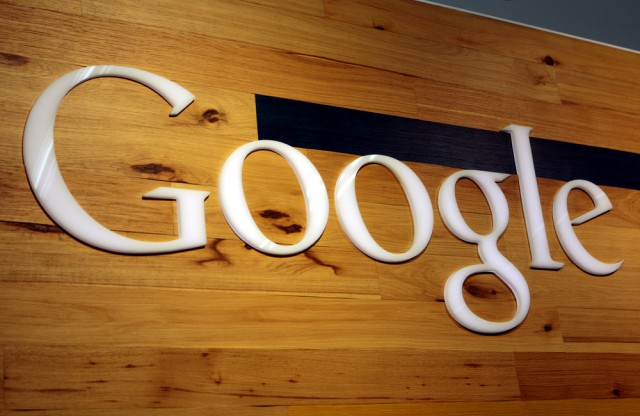
Ransomware is reaching 'epidemic levels'
Ransomware has been named as one of the most pressing threats to society by officers at Europol.
The force has released a new report which claims that ransomware is reaching "epidemic" levels, eclipsing other areas of cybercrime such as data breaches, pornography and card fraud.

Germany is the biggest source of botnets in Europe
Just a year after the Mirai malware infected connected devices to create the first IoT botnet, new research from Norton shows that global botnets have continued to grow and spread as a result of unaware users inadvertently infecting others.
According to Norton, the top three countries responsible for hosting the highest number of bots in Europe are Germany at just over eight percent, Italy at 10 percent and Russia at almost 14 percent.

It will be easy for businesses to comply with GDPR, UK's digital minister says
UK's new Data Protection Bill, aimed to "encourage innovation while protecting privacy," was published this week. Digital minister Matthew Hancock took the opportunity to call all businesses to become compliant with GDPR before the deadline of May 25, 2018.
In an opinion piece published on City AM, Hancock said the new laws are built on the existing ones and it shouldn’t be too hard for businesses to get used to them.

Oracle plans massive job cuts in Europe
Oracle is reportedly planning major job cuts across Europe as it readies for a company-wide reorganization.
According to The Register, Oracle is looking to shift its hardware support division into Romania. Confirmed by 'multiple insiders' the report states the process has already begun, although the deadline for migration differs from country to country.

Google plans to appeal €2.42bn EU antitrust fine
Google will appeal the EU fine of €2.42 billion for abusing its dominant position in the market, reports have claimed.
The US giant was fined earlier this year for abusing its monopoly in search engine and shopping comparison services. Google said it respected the EU Commission's ruling, but that it disagrees.

Europe wants tech giants to pay higher taxes
Tech giants like Google or Amazon might end up paying a lot more tax in Europe, if a new EU initiative goes through.
A debate concerning whether tech giants should pay taxes wherever they produce value has been scheduled for September 15.

Facebook hit with €1.2 million fine for Spanish privacy violations
That Facebook is causing ripples when it comes to privacy will come as little surprise to anyone. Like Google, the social network and its users have an interesting relationship with privacy. Facebook is facing a particular problem in Europe, and the latest installment of the saga sees the company being fined €1.2 million ($1.44 million) by the Spanish data regulator AEPD.
After an investigation into Facebook, the regulator found that the company had gathered sensitive personal data without consent, and this constituted a very serious infringement of data protection laws. The investigation also identified two "serious" violations, including tracking users through the use of Like buttons embedded in non-Facebook pages.

Many UK businesses don't know if they are GDPR compliant
Every fifth business in the UK has "no idea" if their corporate policies are enough to comply with the upcoming General Data Protection Regulation (GDPR). This is according to a new report by Citrix, which investigates the obstacles companies in the UK are still facing when it comes to complying with GDPR.
The report says there are three major roadblocks --data sprawl, a huge influx of personal customer information and uncertainty around data ownership.

UK execs don't know GDPR's consequences
With the clock still ticking down to the May 2018 GDPR deadline, new research has once again revealed a worrying lack of awareness among many executives.
A study by Alfresco and AIIM found that one in five (21 percent) of senior executives said that they had little or no idea about the effect GDPR would have on their business.

UK will comply with EU data laws after Brexit
The UK government has confirmed that it plans to comply with existing European laws on data handling and sharing, even after Brexit.
A paper published by the GOV.UK government website said that the EU needs to recognize how the UK is looking for an early agreement in finalizing its plans.

Rackspace introduces data privacy and protection service for GDPR compliance
Businesses struggling to get their operations in order before the GDPR kicks in in May 2018 have been given a welcome helping hand from Rackspace.
The company has revealed the launch of a new Privacy and Data Protection (PDP) offering which will help companies ensure they are up to speed with the latest data protection legislation.

Is open banking a nightmare waiting to happen?
The world of banking is about to be transformed. In January 2018, the second Payment Services Directive (PSD2) will be incorporated into UK law, obliging banks to provide other organizations with access to their customers’ financial information. Known colloquially as the "open banking" directive, the new law is intended to end the monopoly of big banks and to provide consumers with a much wider range of financial services providers to choose from.
There are many technical and cultural difficulties that banks will need to overcome in order to comply with the new directive, but perhaps the most serious challenge is how to implement PSD2 without bringing themselves into conflict with another impending piece of legislation; the European Union General Data Protection Regulation (GDPR).

What problems will GDPR solve?
The one-year countdown to the European Union’s most significant cross-border data protection regulation is ticking by swiftly. Coming into enforcement from May 2018, the EU General Data Protection Regulation (GDPR) will profoundly alter the way businesses and consumers look at the data they hold. Being informed about why it’s coming into play and what the regulation is solving will help both organizations and individual citizens understand how they should approach data protection, whether this is becoming GDPR compliant or understanding their new data privacy rights.
Up until the proposed GDPR, businesses operating in the EU worked under inconsistent data protection regulations, varying from country to country. A UK based marketing agency that sent its contact lists to telesales firms in Germany or Spain would have to understand the different data laws of each individual nation and adapt their processes accordingly, in many cases hiring consultants to ensure they complied with the appropriate regulations.

Glass Enterprise Edition is super expensive
One of the main reasons why Google Glass failed to take off was because of its crazy price tag. It was hard to get consumers to embrace a new type of gadget when it cost $1,500 and offered questionable benefits.
The new Glass Enterprise Edition may be after a different crowd, but its price has not changed much. A listing on a partner vendor reveals that business customers can expect to pay €1,550 (about $1,830) for a single device with a bundled app.
Europe says Facebook, Twitter and Google need to improve user terms or face fines
Facebook, Twitter and Google have failed to impress EU authorities with their proposed revisions to user terms. The three companies have been under pressure to amend their terms to bring them in line with European law.
The European Commission and consumer protection authorities wrote to the tech giants last month, giving them until July 20th to submit proposals about their respective social networks. The companies have until September to implement changes that satisfy Europe, or fines could be handed out.
